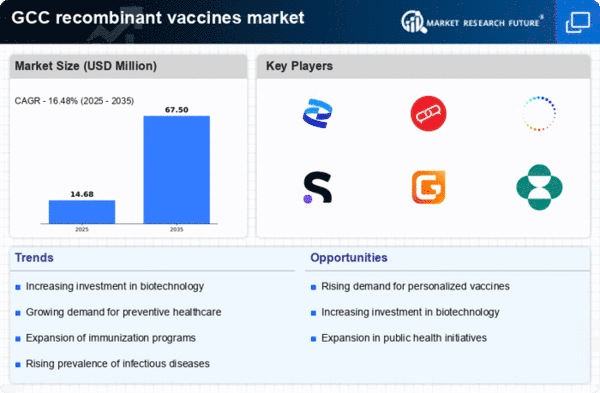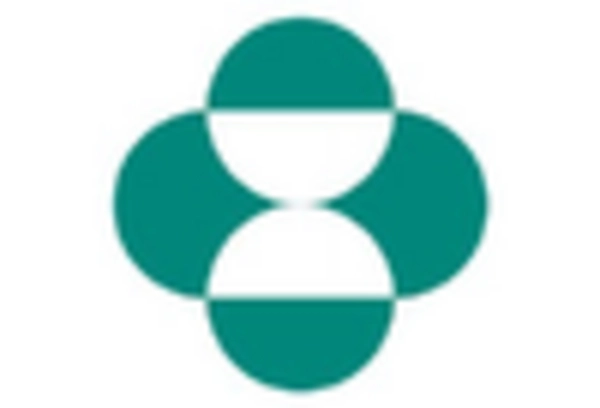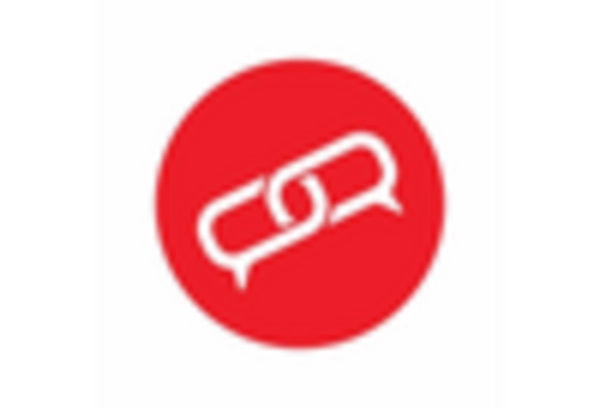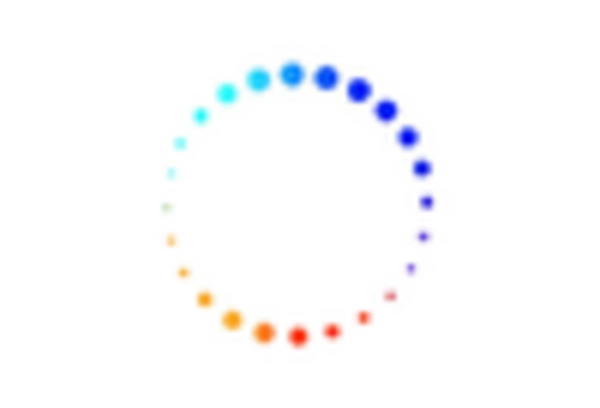Emerging Infectious Disease Threats
The GCC region is facing an increasing threat from emerging infectious diseases, which is driving demand for innovative solutions in the recombinant vaccines market. Recent outbreaks of diseases such as MERS-CoV have highlighted the need for effective vaccination strategies. As public health authorities prioritize the development of vaccines to combat these threats, the recombinant vaccines market is expected to grow significantly. The urgency to address these health challenges is prompting governments to allocate additional resources, estimated at $200 million annually, towards vaccine research and development. This proactive approach is likely to result in the introduction of new recombinant vaccines, ultimately enhancing disease prevention efforts in the region.
Increasing Investment in Biotechnology
The recombinant vaccines market is experiencing a surge in investment from both public and private sectors in the GCC region. This influx of capital is primarily directed towards research and development initiatives aimed at enhancing vaccine efficacy and safety. For instance, the GCC governments have allocated substantial budgets, estimated at over $500 million annually, to support biotechnology firms engaged in vaccine development. This financial backing is likely to foster innovation and expedite the commercialization of new recombinant vaccines. Furthermore, partnerships between academic institutions and biotech companies are becoming more prevalent, facilitating knowledge transfer and technological advancements. As a result, the recombinant vaccines market is poised for growth, driven by enhanced product offerings and improved public health outcomes.
Rising Awareness of Preventive Healthcare
There is a notable increase in public awareness regarding preventive healthcare measures in the GCC, which is positively influencing the recombinant vaccines market. Educational campaigns and health initiatives are being implemented to inform the population about the benefits of vaccination. This heightened awareness is reflected in a reported 30% increase in vaccination rates across various demographics. As individuals become more proactive about their health, the demand for effective vaccines, particularly recombinant ones, is expected to rise. The recombinant vaccines market is likely to benefit from this trend, as healthcare providers and governments emphasize the importance of immunization in preventing infectious diseases. Consequently, the market is anticipated to expand as more individuals seek out preventive solutions.
Strategic Collaborations and Partnerships
Strategic collaborations between pharmaceutical companies and research institutions are becoming increasingly common in the GCC, significantly impacting the recombinant vaccines market. These partnerships facilitate the sharing of resources, expertise, and technology, which can accelerate the development of innovative vaccines. For example, recent collaborations have led to the successful development of several recombinant vaccines targeting endemic diseases in the region. Such initiatives not only enhance the product pipeline but also improve the overall efficiency of vaccine production processes. The recombinant vaccines market is likely to see a boost in both the quantity and quality of available vaccines as a result of these strategic alliances, ultimately benefiting public health.
Regulatory Support for Vaccine Development
Regulatory bodies in the GCC are actively supporting the recombinant vaccines market by streamlining approval processes and providing guidance for vaccine development. This regulatory support is crucial for fostering innovation and ensuring that new vaccines reach the market in a timely manner. Recent initiatives have included the establishment of fast-track approval pathways for vaccines that address urgent public health needs. As a result, the time from development to market launch has been reduced by approximately 20%. This favorable regulatory environment is likely to encourage more companies to invest in recombinant vaccine research, thereby expanding the market and enhancing the availability of vaccines for the population.
















